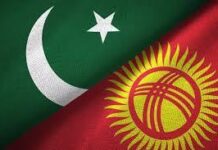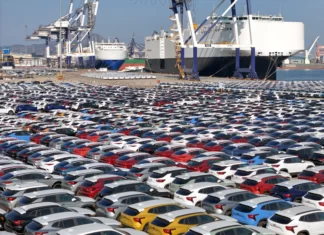Despite commitments totaling $11 billion from various international donors for Pakistan’s flood-stricken regions, actual funds disbursed remain markedly low at $1.4 billion due to slow project financing.
Devastating floods struck Pakistan in 2022, causing over $16.4 billion in damages to the already crisis-stricken economy.
When accounting for contributions from the Islamic Development Bank (IsDB) and the Saudi Fund for Development (SFD) under the oil facility, the total amount received till date stands at $2.69 billion — still short of the pledged amount.
A breakdown of the pledged funds during the Geneva conference reveals a stark disparity between commitments and actual financial assistance.
The World Bank, for example, pledged $2.199 billion, with only $969 million disbursed so far and an additional $119.3 million expected by June 2024.
Similarly, the Asian Development Bank (ADB) committed $1.561 billion, yet only $108.79 million has been disbursed, with a further $340.9 million anticipated by mid-2024.
Other pledges include $1 billion from the Asian Infrastructure Investment Bank (AIIB) and $100 million from China, with only $250 million disbursed and no further disbursements projected by the end of the financial year.
The Islamic Development Bank (IsDB) pledged $600 million, yet has only disbursed $60.7 million, with an expected increase of $69.5 million by June 2024.
The slow disbursement rate is not limited to project financing alone. Oil financing pledges from the IsDB and Saudi Arabia have also seen limited progress, with the IsDB disbursing only $200 million of a $3.6 billion pledge and the KSA fulfilling its $1 billion pledge for oil facilities.
Contributions to the Prime Minister’s Flood Relief Fund have been more straightforward, with the entire pledged amount of $2.1 million received. However, this represents only a small fraction of the total aid needed.
This slow pace of disbursement has implications for Pakistan’s recovery and rebuilding efforts. The country, grappling with financial woes, is now contemplating an appeal to the International Monetary Fund (IMF) to increase its loan size to include climate financing.
This move could potentially raise the three-year Extended Fund Facility (EFF) from $6 billion to $8 billion, providing much-needed financial support for Pakistan’s long-term recovery plans.
























